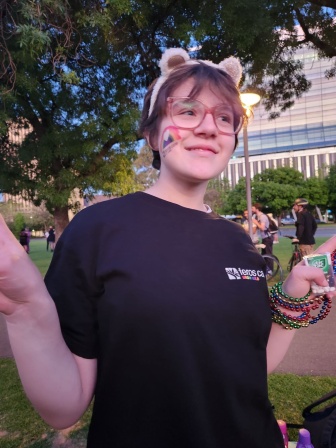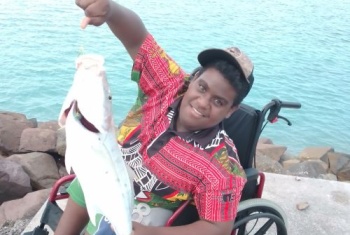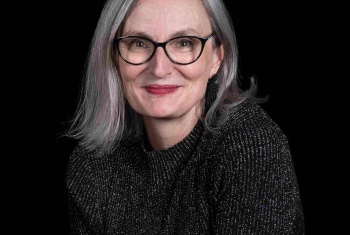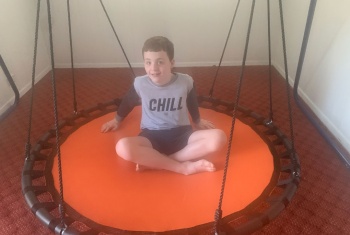Charlie Vivash is optimistic, growing in confidence, and making friends.
But the 16-year-old, who lives with autism and identifies as non-binary, has had a tough journey.
Charlie’s mother Emily credits NDIS support as having a life-saving impact.
‘The support has been absolutely amazing. Just from the therapy and a couple of the programs that we’ve attended, it has made a massive difference,’ Emily says.
‘The NDIS kept my child alive.’
At school, Charlie was bullied and threatened with harm and Charlie considered quitting.
‘That made Charlie depressed. It was awful because prior to that, they loved school,’ Emily says.
Emily worried Charlie’s depression was life-threatening, but positive change started after a diagnosis.
‘We didn't pick up on what was happening until Charlie’s later years in middle school. Then we saw a psychologist and walked out with an autism diagnosis,’ Emily says.
‘We all fell over backwards, but then we looked back and went ‘oh I can see it now’.'
Charlie struggled with social communication, certain academic tasks, and regulating their emotions.
Making friends and appropriate conversation was difficult, and there were challenges with fine motor skills too.
But Charlie’s NDIS supports, including occupational and psychological therapies and programs like Feros Care’s Autism Workshop, turned things around.
Charlie, now in year 11, acknowledges the benefits psychological therapy has had, especially at school.
‘Sometimes I try the solutions from my psychologist. She will give me a bunch of options, and they really help,’ Charlie says.
‘She helps mostly with school situations. I work out lots of social situations myself and I work out what I’ll talk to mum about.’
Emily is relieved and impressed with Charlie’s progress.
‘Charlie used to be an ‘I don’t know kid’, unable to answer questions or express opinions,’ Emily says.
‘We’ve had about 12 months of therapy, and we’re still getting there, but now Charlie can attend an autism workshop and explain to people what it means to live in their world.’
Taking part in a scout group and playing in a local football team have both helped Charlie make friends – a vital step in their improved wellbeing.
Charlie is also part of Neo, a group of teens who hang out together and get creative at the Art Gallery of South Australia, where Charlie is an unofficial ambassador.
‘At Neo you can just have fun. You can be from anywhere in the community, including the rainbow community, and you can meet new people and make new friends,’ Charlie says.
Making friends has made Charlie feel much better.
‘It’s made me a lot more happy. I was down in the dumps when I didn’t know how to make more friends,’ Charlie says.
‘I like hanging out with my friends and trying to mingle. I try my hardest.’
Emily is proud of Charlie’s courage in stepping out of their comfort zone and educating others about their challenges.
‘Charlie was able to tell the football team about their difficulties with social skills, and that when appearing disconnected or uninterested it’s because they’ve accidentally zoned out,’ Emily says.
Charlie’s journey with autism and gender identity has led to firm beliefs about acceptance and inclusion.
‘Whether you are bi, trans, or whatever, I think people should just be accepted for who they are,’ Charlie says.
‘Inclusion is about bringing everyone together, not leaving people out because of how they look, or if they’re gay.
‘We should all be supporting each other.’



